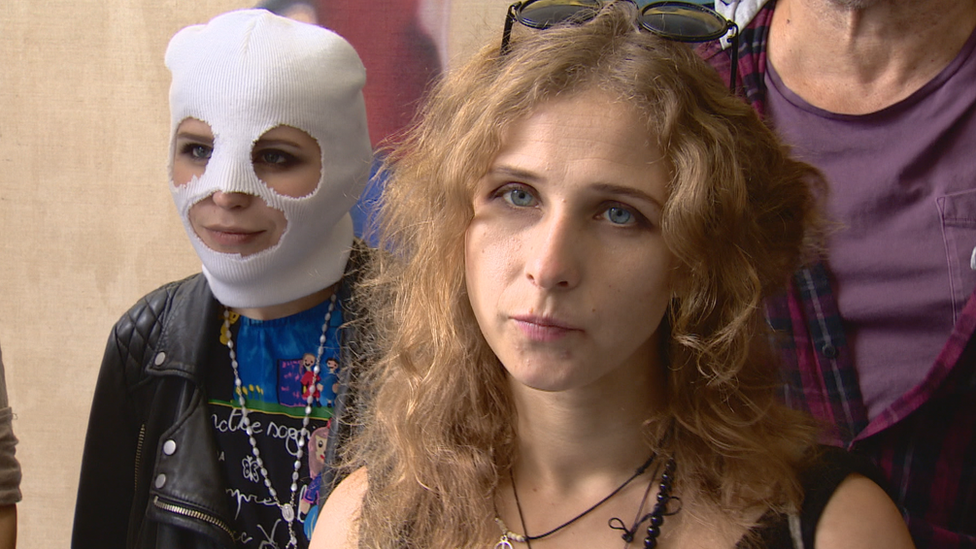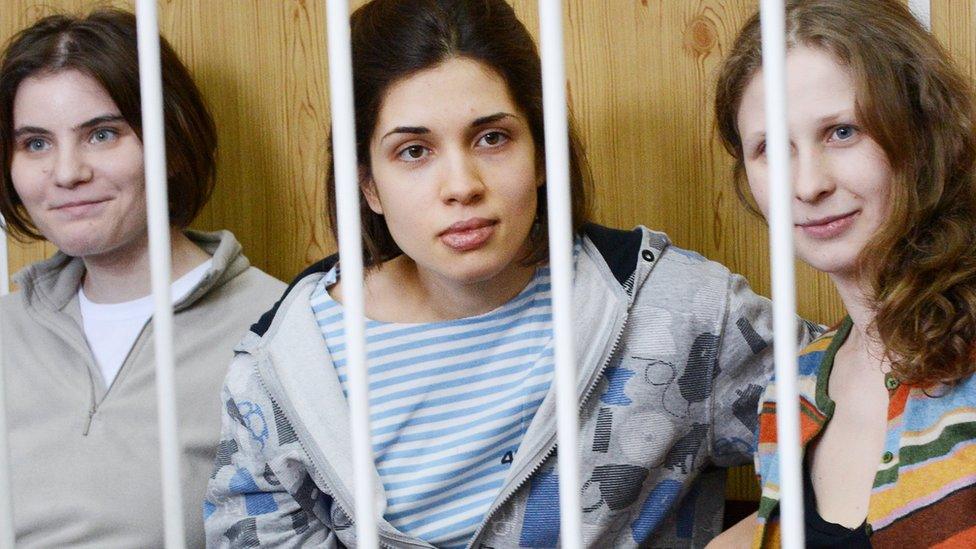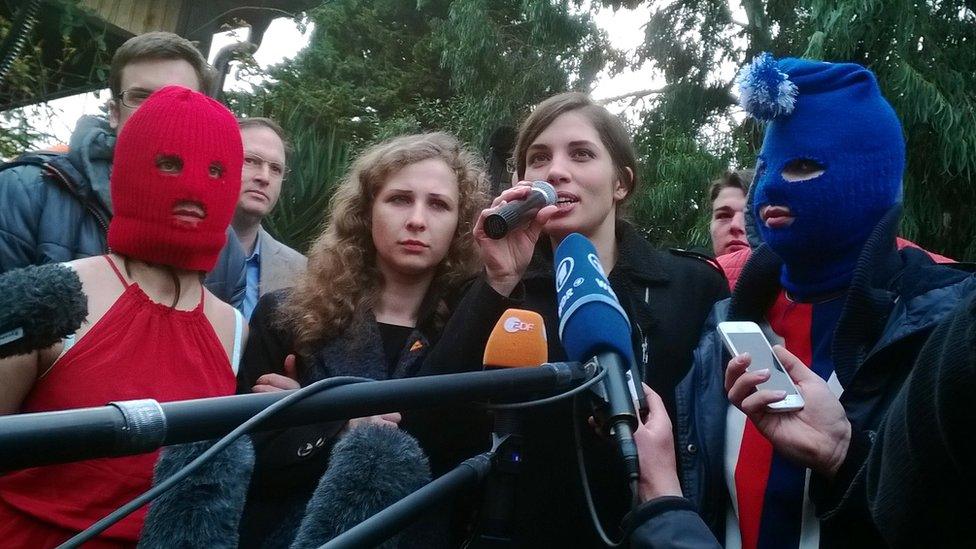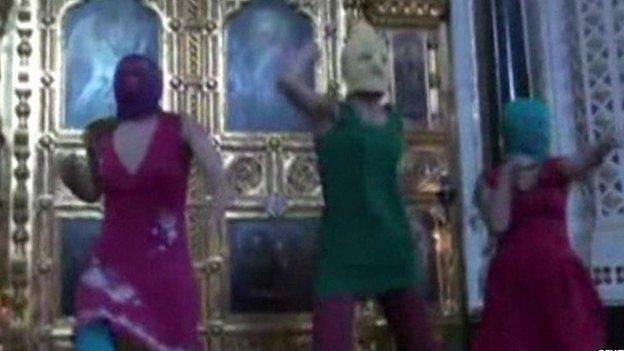Pussy Riot activist defies Russian travel ban
- Published

Maria Alyokhina's show will be at the Edinburgh Fringe
One of the original members of the feminist protest group Pussy Riot has said she "escaped" Russia to travel to the Edinburgh Fringe for her show.
Maria Alyokhina claims the Russian government banned her from leaving the country but she defied the ban to make it to Scotland's capital.
Alyokhina shot to fame in 2012 after appearing in a Moscow Cathedral performing an obscenity-laced prayer.
She was sentenced to two years in prison but was released early.

Members of the all-girl punk band 'Pussy Riot' Nadezhda Tolokonnikova (C), Maria Alyokhina (R) and Yekaterina Samutsevich (L), sit behind bars during a court hearing in Moscow in July 2012
The group's performance in the Cathedral of Christ the Saviour attacked the Orthodox Church's support for President Vladimir Putin.
Alyokhina was freed in December 2013 under an amnesty she dismissed as a propaganda stunt to improve President Putin's image ahead of the 2014 Sochi Winter Olympics.
Since her release, the Pussy Riot movement has gained members, some of whom disrupted football's World Cup final last month.
Alyokhina says she was barred from leaving the country after a protest earlier this week in front of the headquarters of the Federal Penitentiary Service (FSIN) in Moscow.
The action was meant to protest against what activists called the beating and torture of inmates by prison guards across Russia.
Following the ban, Alyokhina says she managed to get to a country which is in the European Union, where she boarded a flight to the UK.

Nadezhda Tolokonnikova (R) and Maria Alyokhina speak to the press with fellow Russian punk group Pussy Riot members in February 2014 in Sochi
She was travelling to Edinburgh for her show at Summerhall which tells the story of her 2012 protest and her imprisonment for "hooliganism motivated by religious hatred".
Alyokhina told BBC Scotland: "It is important to us to tell this story because we believe this story can be an example for you to do your own Pussy Riot.
"It took some time to get here because two days ago I knew that I am not allowed to leave the country.
"We found a way to get here with some adventures along the way."
'It is a movement now'
She said she did not know what sanctions faced her when she returned to Russia.
"They ban me to leave the country and I have not followed their decision so after that all the big media channels covered that I have done it," she said.
"Usually after this big attention something happens, I don't know what.
"If you are an activist or a political artist you can expect some problems such as a prison term or sanctions or other unpredictable stuff."
She said the aim of Pussy Riot was to make people stand up for free speech and challenge unfairness.
"I believe that all the people who were standing for us, and are still standing for us, are all Pussy Riot as well," she said.
"That's why it is bigger. That is why it is a movement now."
- Published23 December 2013
